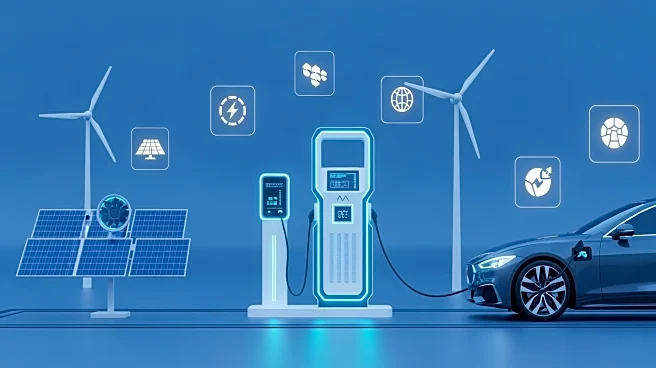What's Happening?
A recent study conducted by Swedish used car platform Kvdbil has revealed that electric vehicle (EV) batteries tend to last longer than traditional gas engines. The study examined the battery health of 723 fully electric cars and 643 plug-in hybrids,
finding that approximately 80% of these vehicles retained 90% or more of their initial battery capacity after several years. This finding challenges common concerns about the longevity of EV batteries and suggests that both initial owners and subsequent buyers of used EVs can expect durable battery performance. The study highlights models such as the Kia EV6 and Tesla Model Y as having particularly resilient battery capacities.
Why It's Important?
The study's findings are significant for the automotive industry and consumers considering the transition to electric vehicles. Long-lasting batteries can reduce the total cost of ownership for EVs, making them more attractive to consumers who are concerned about maintenance and replacement costs. This could accelerate the adoption of electric vehicles, contributing to environmental goals by reducing reliance on fossil fuels. Automakers may also benefit from increased consumer confidence in EV technology, potentially boosting sales and encouraging further innovation in battery technology.
What's Next?
As the study gains attention, it may influence consumer perceptions and purchasing decisions regarding electric vehicles. Automakers might leverage these findings in marketing strategies to highlight the reliability and long-term value of their EV offerings. Additionally, further research could be conducted to explore the factors contributing to battery longevity, such as climate conditions and usage patterns, providing deeper insights into optimizing EV performance.
Beyond the Headlines
The study also touches on the impact of climate on battery performance, noting that colder climates like Sweden may contribute to better battery longevity compared to hotter regions. This could lead to discussions on how environmental factors influence EV technology and the development of more robust thermal management systems to ensure consistent performance across different climates.















